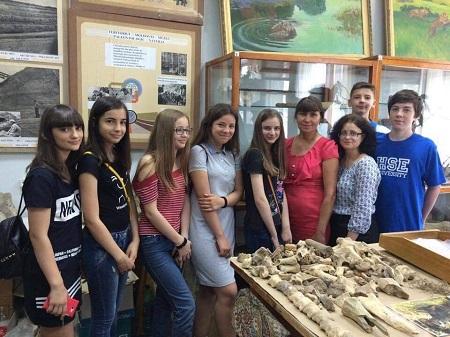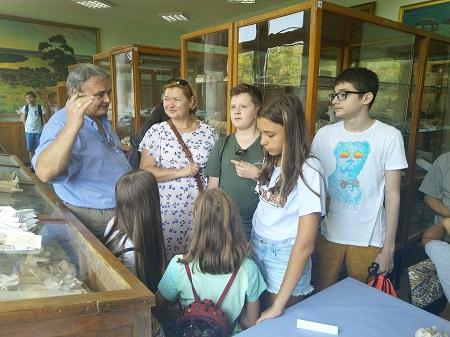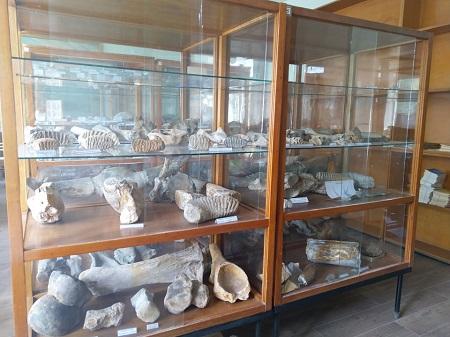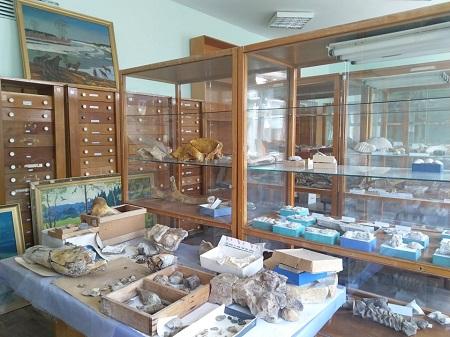 |
 |
 |
 |
The Museum of Fossil Faunistic Complexes of Moldova was founded in 1976 by Prof. C.N. Negadaev-Nikonov and Prof. A. David. The collection includes several tens of thousands of pieces belonging to different groups of animals and plants - vestiges of the ancient past on the territory of the republic. In the glass cases of the museum several hundred exhibits are displayed belonging to mammals, birds, reptiles, fish, mollusks, other creatures, especially from the Neogene and Quaternary eras (about the last 20 million years of Earth's history). Unique pieces of exceptional scientific value are presented, including holotypes of new species for science, described after the materials collected in the republic.
A large part of the museum's exhibition is reserved for the representatives of several fossil fauna complexes, each complex having a certain chronological period (in millions or thousands of years) of geological time, with the typical representatives of each complex. These Complexes are characteristic not only for the territory of the Republic of Moldova but also for south-western Eastern Europe and two of them - Moldovian (4.2-3.5 million years) and Tiraspolian (800-400 thousand years) for the territory of Europe. A special place in these complexes belongs to the vertebrate pieces, both terrestrial and marine (whales, seals), these being represented by various parts of the skeleton (skulls, mandibles, teeth, bones) and reflecting an extremely rich systematic variety for each faunal complex.
In this museum there are exhibited stands on which the localities of the republic are indicated with the main geological-paleontological monuments, images with the reconstructions of various animals and paleo-landscape from the geological past. The museum has a scientific aspect but is visited by pupils, students and the general public. Excursions and scientific meetings of various ranks, including international ones, take place here. The excursions reflect the problems of the diversity of the evolution of life on Earth, the importance of fossils in knowing the laws of development of the organic world, about the geological past of the republic, about the scientific and practical importance of fossils.